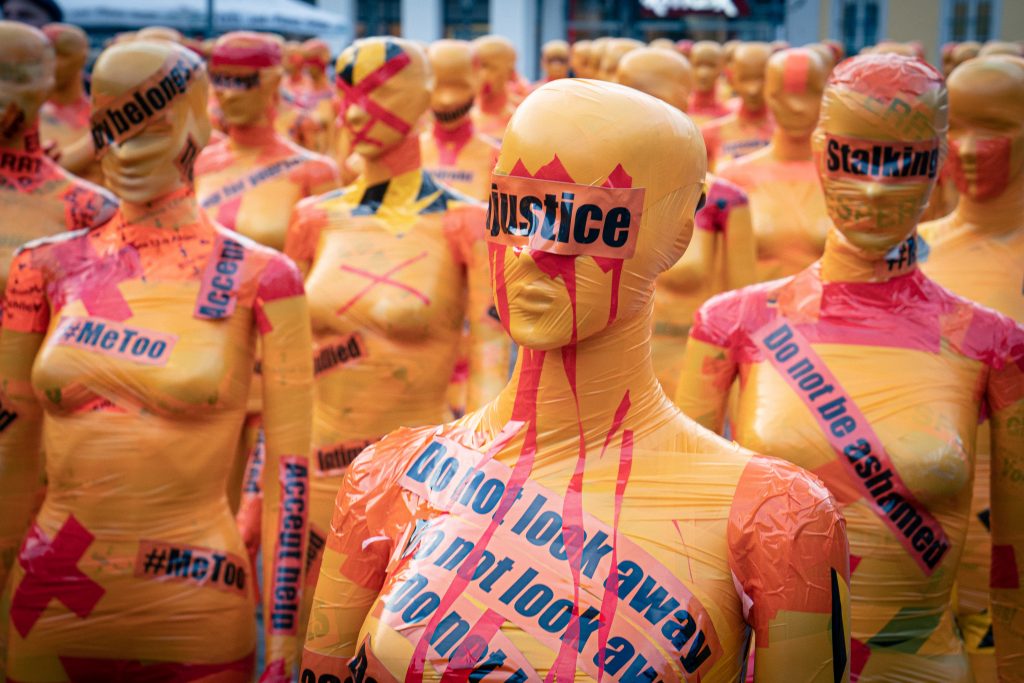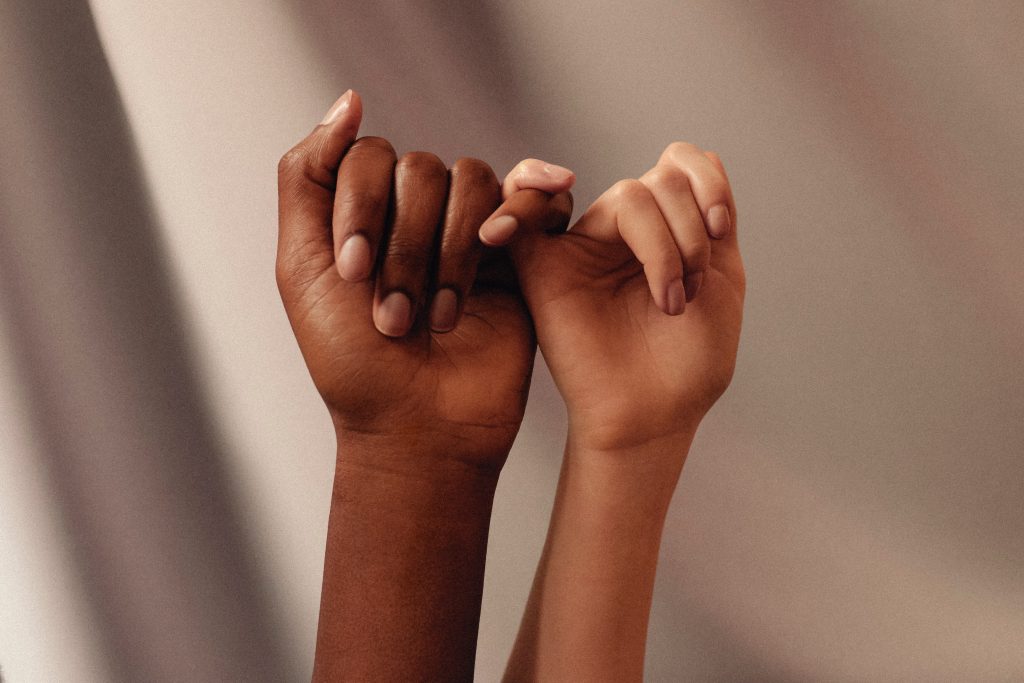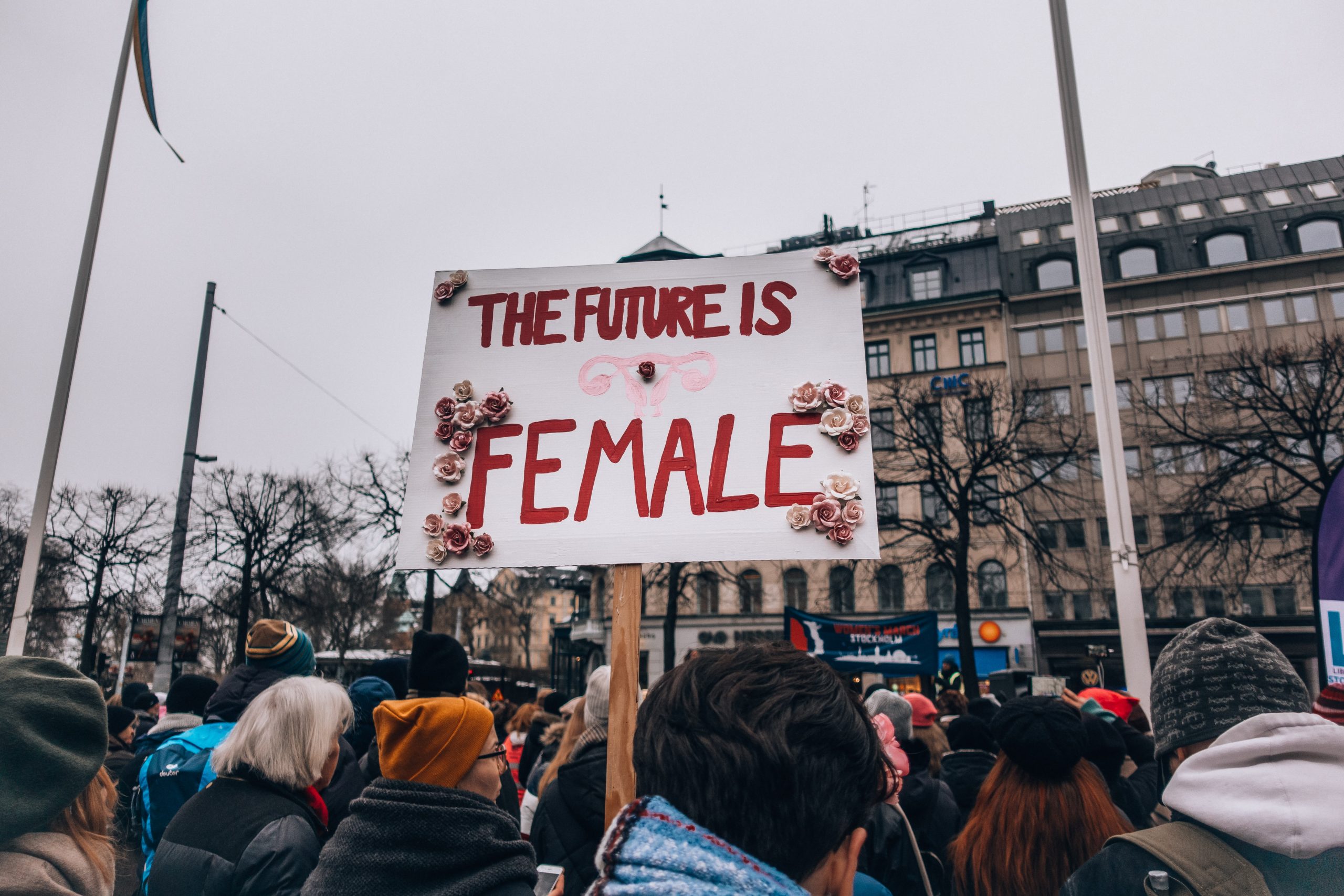Last week, my girlfriends and I were enjoying the afternoon sunshine cascading through the netted canopy of trees—our paling skin grateful for the crisp March warmth after the spell of frigid weather had chapped our feeble fingers. We sunk our teeth into delectable peanut butter sandwiches, our heads spinning with the derivatives of calculus equations and the themes of Ernest Hemingway’s “The Sun Also Rises.”
As we attempted to distract ourselves from the plethora of tests and quizzes that we had yet to complete, one friend began to narrate the story of how her car was followed as she made her way home to Jackson at night and her attempts to throw the stalker off her trail. Another friend soon chimed into the conversation, her voice echoing the same sentiments of fear as she recounted her tale of being stalked by a group of teenage boys in her own neighborhood.
I would have forgotten about this lunch discussion, dismissing it as meaningless gossip, if it were not for the notification that blazoned across my phone screen only hours later: “Governor Andrew Cuomo accused of sexual assault by aide Lindsey Boylan.”
‘COVID Ought to Have Stalled the #MeToo Movement’
At first, I was a bit taken aback—according to my oblivious self, COVID ought to have stalled the MeToo movement. After some more investigation, I discovered that Ms. Boylan’s claims in fact dated to December 2018.
But could it still be possible for someone to sexually assault in the midst of a global pandemic? Could perpetrators that depraved really exist?
As I delved into the internet to satiate my curiosity, my supposition was confirmed. In fact, since the pandemic has started, female victims have been locked in with their abusive partners, with no means of escape.
Take the example of a court hearing conducted via Zoom—prosecutor Deborah Davis had probable cause to believe that her client was with her abuser, Cody Harris. Davis also speculated that this proximity indicated that the defendant was a victim of witness intimidation. Once the police arrived, Davis’ suspicions were confirmed and Cody Harris was promptly arrested.
Domestic abuse is not the only sexist crime on the rise. In fact, just as I was getting ready to send in this piece for editing, news of the murder of eight Atlanta women flashed on TV screens across the country. Though it was earlier suspected that the perpetrator of this crime was racially motivated (a majority of the deceased were Asian), police soon discovered that the murderer was a porn addict. He indicated that killing these innocent women seemed to him an apt way to channel his sexual inclinations into an outlet other than porn. That, of course, does not mean the crime wasn’t racist as well as misogynistic.
Women are Goaded into Tolerance
Both these cases and my lunch conversations point to a significant truth. While high-profile cases like Gov. Cuomo’s are undoubtedly shocking and raise public awareness of official abuses of power, they are only a microcosmic reality of what most American women experience on a daily basis. In fact, only between 3% and 6% of sexual-harassment cases are ever brought to trial and by extension, the public eye. Many factors may perpetuate such a statistic: women cower before sex stigmas, the prospect of damaging repercussions to their careers, a lack of awareness of what behaviors constitute sexual harassment, and their own sense of unwavering shame and guilt.
But perhaps the most potent and startling reason that sexual harassment goes unreported is because women are simply used to it or, phrased more accurately, conditioned to be used to it.
From the time we are little girls, women are goaded into an attitude of complacency and tolerance.

I remember when I complained to a teacher about how a male classmate made me uncomfortable with his derisive remarks. Though she promised to talk to him about his behavior, she also attempted to ameliorate my inflamed sense of self, saying to innocuous, unsuspecting 11-year-old me, “You know, sometimes boys tease girls because they like them.” She was not the only one from whom not only I would hear such bromides; several other girlfriends would also espouse such sexist rhetoric when I would share similar incidents with them.
One need look no further than the allegations Dr. Christine Blasey Ford levied against now-Justice Brett Kavanaugh in order to examine the ways in which sexual assault perpetrated by teenagerss is justified. The extensively published psychology professor reported that Kavanaugh assaulted her when the two were in high school. During the trial, I heard many adults utter statements of flaming ignorance, such as, “Why was she at the party in the first place?” or “He was 17! He was just a boy.”
This blatant justification of male mistreatment of women does not cease beyond the boundaries of our childhood, a supposed oasis. On the contrary, it trickles into our workplaces and infiltrates all aspects of our popular culture, most prominently present in T.V. and cinema. When Bollywood director Sandeep Reddy Vangha was pressed about the laughing responses elicited by a scene in his movie, which featured a drunk man slapping his girlfriend, he cheekily responded, “Physical aggression is a manifestation of love.”
Remember, ‘We Are the World’
In our world, then, women are considered unyielding objects, an ever-porous being that is expected to be a receptacle of a man’s pleasure, frustration, regret and ego. Their bodies pay the price of inescapable physical sensitivities, and their words of opposition are quashed down as meaningless lies. The world can’t bear to hear a woman speak of the ways in which she has been exploited; it can both revel at her success and be repulsed by her sorrow. Women are regarded as epitomes of sacrifice and of selflessness, all virtues for the world and curses for their own selves.
But before we plunge into the depths of despair, we must not forget that we are the world.
Enacting change appears impossible to us because we disable ourselves of that capacity, convincing ourselves that change is the feat of only the remarkable. But who are we to decide that we ourselves are not remarkable? Remarkability does not constitute the power to stir slumbering peoples within a matter of seconds, but rather the ability to empathize with those most accessible to us and assemble an armament of action to alleviate the apathy the assaulted face on a daily basis.

We can be remarkable if we encourage our daughters to speak up when they feel uncomfortable.
We can be remarkable if we remind our sons that they ought to revere the woman fashioned from their rib in the same manner that they regard their own flesh.
And we can be remarkable if we as women always remember that while we can command respect for our character, we must demand respect for our person.
Maybe then, one day, we’ll say, “We, too, were strong.”
We’ll say, “We, too, left an indelible impression on the world.”
And then, finally, one day, we’ll be able to say when others were saying, “Me too,” their cries of protest did not fall on deaf ears, for we too listened.
This MFP Voices essay does not necessarily represent the views of the Mississippi Free Press, its staff or board members. To submit an essay for the MFP Voices section, send up to 1,200 words and factcheck information to azia@mississippifreepress.com. We welcome a wide variety of viewpoints.






